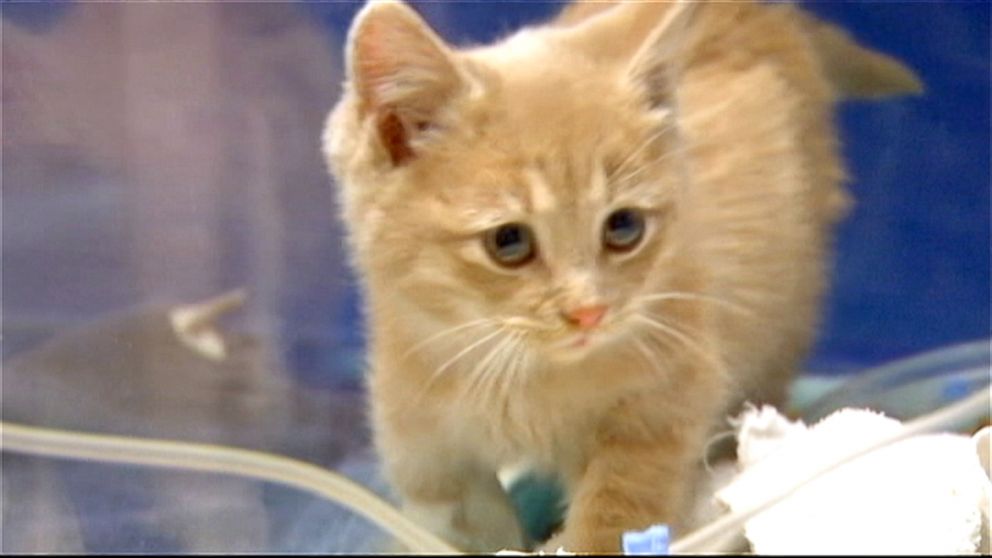Meet Elsa, the Kitten Who Survived Being Frozen
Named after the "Frozen" character after being found limp in bitter Denver cold.
— -- After the orange tabby kitten was brought in from the frigid Denver cold, "limp, eyes closed, not shivering," a veterinarian said, shelter staffers pulled out all the stops.
"You could sort of feel the cold coming off her," said the veterinarian, Dr. Kasey Carter, who treated the kitten at the shelter, the Denver Dumb Friends League.
Staff members pulled out hair dryers to warm the kitten's fur and placed her in heating pads with mittens to warm her paws. They even injected her with warm IV fluids and wrapped her in a bear hugger, a blanket device with a tube that blows in warm air.
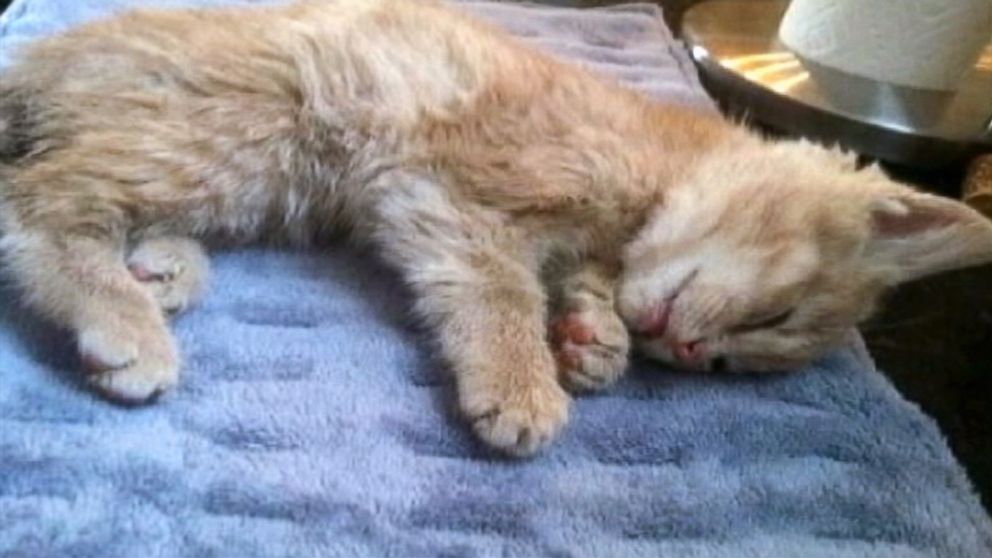
The preferred temperature for a cat is 101.5. The kitten's temperature did not even register on a thermometer that measures temperature at 90 and up upon arrival at the shelter around 11:30 a.m. Thursday.
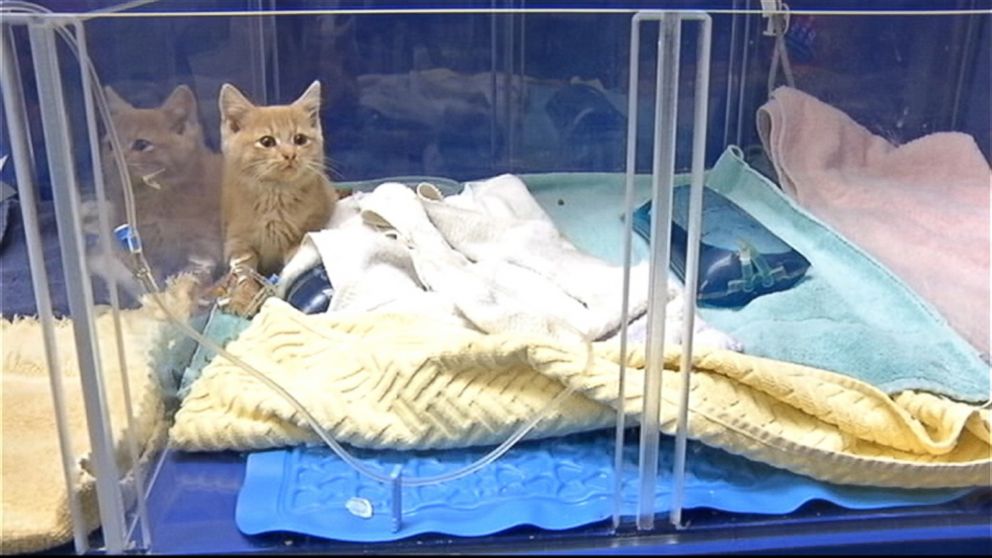
"When she came into the shelter, we weren't even sure if she was alive," said Megan Rees, a spokeswoman for the shelter, adding that the kitten apparently had been out in temperatures below 10 degrees Fahrenheit for a few hours.
Today, the kitten, dubbed Elsa after the Disney character because of her "fighting, little spirit" and the extreme weather she had experienced, according to Rees, is doing much better.
Elsa is reported to be in stable condition, and shelter officials hope she will be claimed by her owner. If not, they will eventually put her up for adoption.
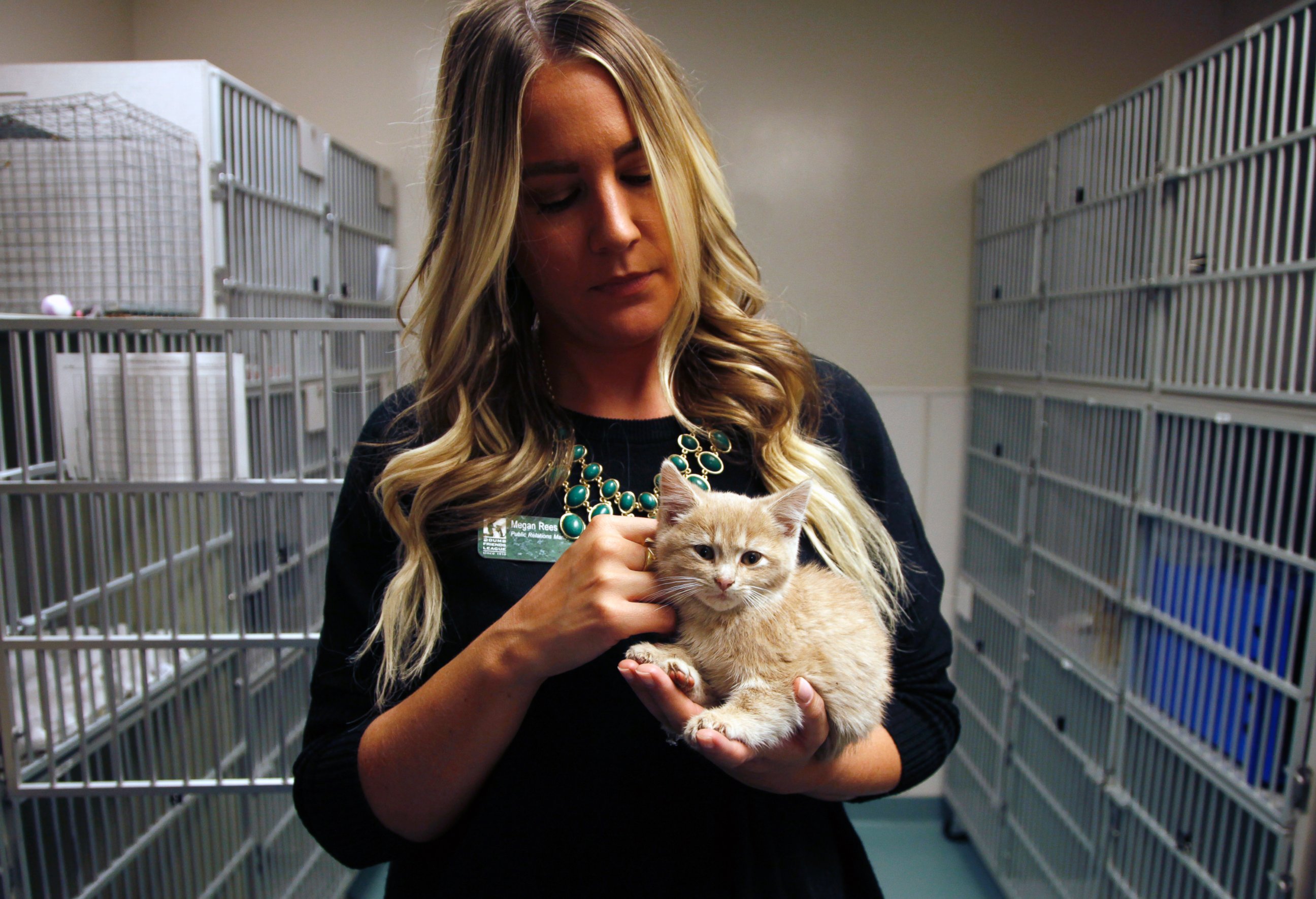
It's a long way from when the 3-to-4-month-old, 1.2-pound kitten was found outside the prior day. She was in critical condition upon arrival, unable to move or blink her eyes.
Elsa initially showed few signs of improvement. Her temperature staying below 90 degrees for about an hour and her blood sugar levels were low from hypothermia.
"We just continued to keep her warm," said Rees.
Elsa's temperature registered after an hour and her body showed signs of movement.
"She just started moving on her own," Carter said, laughing. "We put some food in front of her and she immediately went for it, a little ravenous."
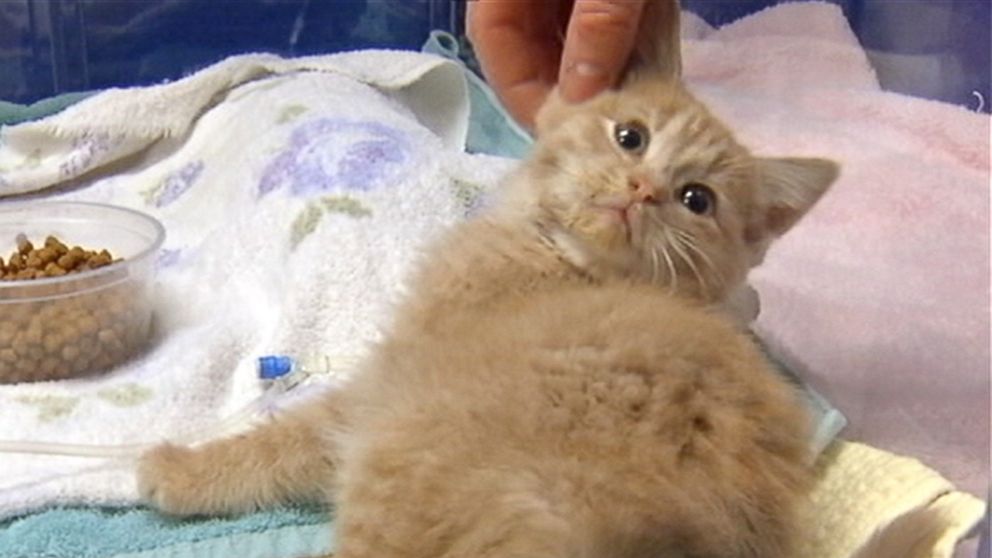
Rees said that the likelihood of small kittens like Elsa surviving in such harsh conditions is low.
"They're so small and fragile to begin with," said Rees. "It's hard to imagine a kitten surviving in such severely cold weather for an extended period of time. ... It's just really a miracle that she was able to pull through."
